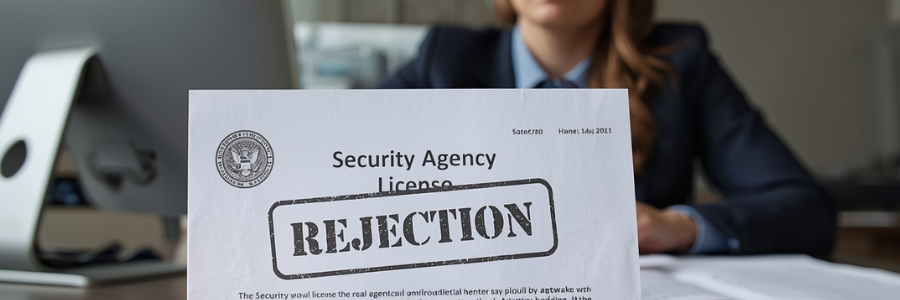PSARA License & Labor Law Compliance: Regulates Security Agencies
With the growing practices of the private security agencies in India, adherence to compliance for running agencies is crucial. As India is the landscape of businesses, to manage the fundamental rights and operations, the central and state governments have a mandate for mandatory registrations. This indicates that whoever desires to run a private security firm in India must comply with labor laws and the PSARA Act. The PSARA and labor law govern the activities of a registered private security guard. Let’s review this guide to know how the labor law and PSARA license compliances go hand-in-hand to monitor a security agency.
A. Understanding the Role of the PSARA Registration Certificate
PSARA, or the Private Security Agency (Regulation) Act, is a government-implemented law on the agencies. With this PSARA license, companies can lawfully run private security firms in a particular Indian state. The major purpose of it is to ensure that agencies meet government standards and stay professional & reliable, including building trust and much more. The key roles it performs are:
- The licensing process ensures agencies adhere to a set of standards for training, equipment, and conduct, promoting professionalism within the industry.
- A valid license assures clients that the agency is legitimate, has undergone necessary background checks, and meets government-mandated standards, according to Legal Raasta.
- The PSARA license is often a requirement for participating in government tenders, even in corporate tenders.
- The certificate procedure establishes clear accountability and responsibility for the organization and its staff.
B. Why is the PSARA License Important?
Here are the main reasons that make PSARA security license registration mandatory:
- Mandatory Requirement: A security department cannot deliver security assistance without a valid PSARA license.
- Credibility: A license demonstrates that the security agency has met the requirements to conduct business and provides clients with assurance of professionalism and ethical standards.
- Worker Protections: The legal requirements extend to worker protections related to being vetted for employment, background checks, and being trained—all of which make it safer for workers and the public.
- Operational Standards: It guarantees that the agency maintains the operational standards required by the government, as outlined in the PSARA Act.
- Liability: Lack of compliance may result in various legal sanctions, revocation of the license, and loss of the business.
C. Labor Law Compliance for Security Agencies
The personal security agencies are liable for compliance with Indian labor laws. This labor law is the guide to employee rights and wages. The law provides businesses with a framework to make their operations transparent and favorable. Conversely, security agencies must comply with labor laws, including requirements such as employee training and background checks. Additionally, adherence to the working timelines, approval of ID cards, medical fitness verification, and appropriate uniforms are all necessary. The elaboration of labor law obedience for security agencies:
Personnel & Hiring
Before engaging the personnel, it is important to verify their background checks, such as criminal records. The personnel further meet the set eligibility criteria highlighted under the PSARA Act and labor law. Staying medically fit is mandatory, and maintaining satisfactory biological fitness is too. People over 60 are ineligible to work as employees of a private security company.
Training and Development
The personnel go through the mandatory training, such as firefighting, handling security equipment, and general safety. Regular updates for the training are crucial. Conduct the periodic training to keep the skills most current with evolving security.
Uniforms and Identification
Wearing the prescribed dress code is important. The security guards must ensure that their shoes, uniforms, and badges do not match military or army uniforms. The guards must keep their photo ID card in person always.
Operational and Administrative Compliance
To meet the compliance requirements, all personnel, including private security agencies, must obtain all necessary licenses within the stipulated timeframe. Report the details of all agency personnel to the controlling authority. If there are any modifications to the address or the management, confirm with the controlling authority within 30 days.
D. How PSARA Licensing Supports Labor Law Compliance
The PSARA license demonstrates that the businesses that get the security license must align with labor law compliance. The adherence to core labor and social security legislation is a compulsory requirement for licensing and continued operation. Overall, it makes the working conditions better for the personnel and provides legal protection. This is how the security license supports labor law:
* PSARA’s emphasis on employee welfare
* Mandatory training and skill development
* Transparent hiring and verification process
* Aligning wages and employment standards with labor laws
Also Read: Difference Between PSARA License & Private Security Agency License
E. Penalties for Non-Compliance with PSARA or Labor Laws
The non-compliance with the PSARA Act or labor laws may raise significant challenges for businesses. The security agency that does not align with the PSARA or labor law may suffer from fines to imprisonment. The punishment is confined by the essence of the offense. If any agency tries to operate without the PSARA license certificate, it will face up to one year imprisonment and a Rs 25,000 fine, or both. If the offense is too serious, such as contravention of Sections 9, 10, and 12, the license will be suspended or revoked. To avoid such legal complications, the security agencies must stay updated with new notifications, obtain a license on time, and stay compliant with regulatory requirements.
F. Conclusion | PSARA Registration & Labor Law Compliance for Security Agencies
Adherence to PSARA compliance is essential for the PSARA license to be approved. The compliance requirements vary from state to state. But the management of the labor law is a further prerequisite for the PSARA registration certificate. The PSARA essentially serves as a regulatory body that upholds the current labor regulations in the private security sector. If you are searching for a PSARA license agent, then choose LegalRaasta for the fast service. Our assistants handle the documentation and registration procedure.
User Query: Multi-State Security Agency Licensing
G. FAQs | Private Security Agency Regulation Act Compliance
- Does every state have to implement PSARA?
Ans. Yes, I believe PSARA registration is mandatory in India. To legally manage a private security agency throughout India, securing the license is essential in every state in India.
- What if I do not obtain the security license?
Ans. Failure to obtain the license after the agency’s establishment can result in a potential penalty. It can be imprisonment for up to one year, a fine of Rs 25,000, or both.
- What is the grace period of the PSARA license?
Ans. For the PSARA Act license renewal, the agencies must apply at least 45 days prior to its expiry.
- What is the renewal process of PSARA?
Ans. The security license renewal process is similar to the initial application procedure.
- What does MOU refer to?
Ans. MOU stands for Memorandum of Understanding. It is a legal contract between the government-approved training institution and the private security agency.










